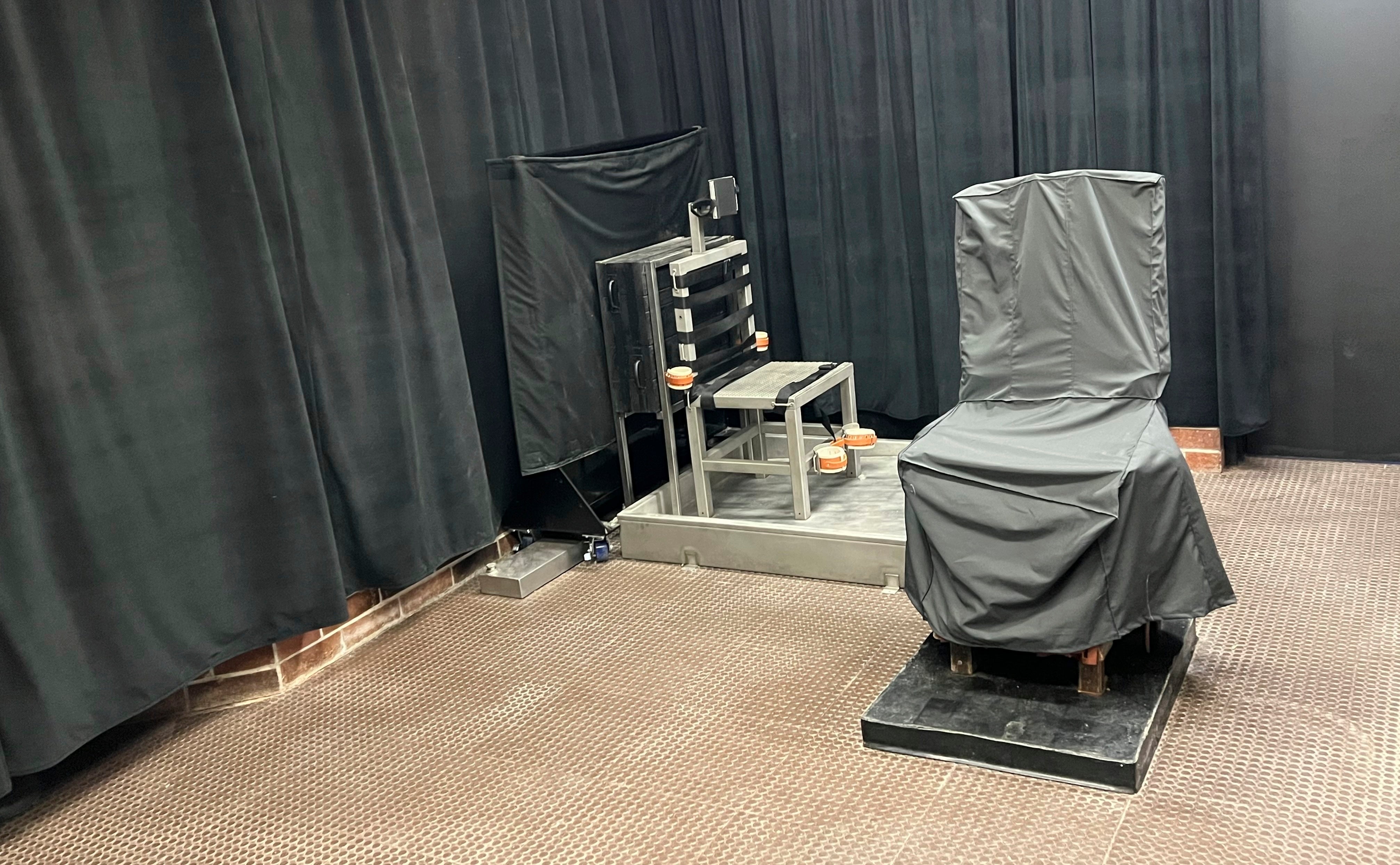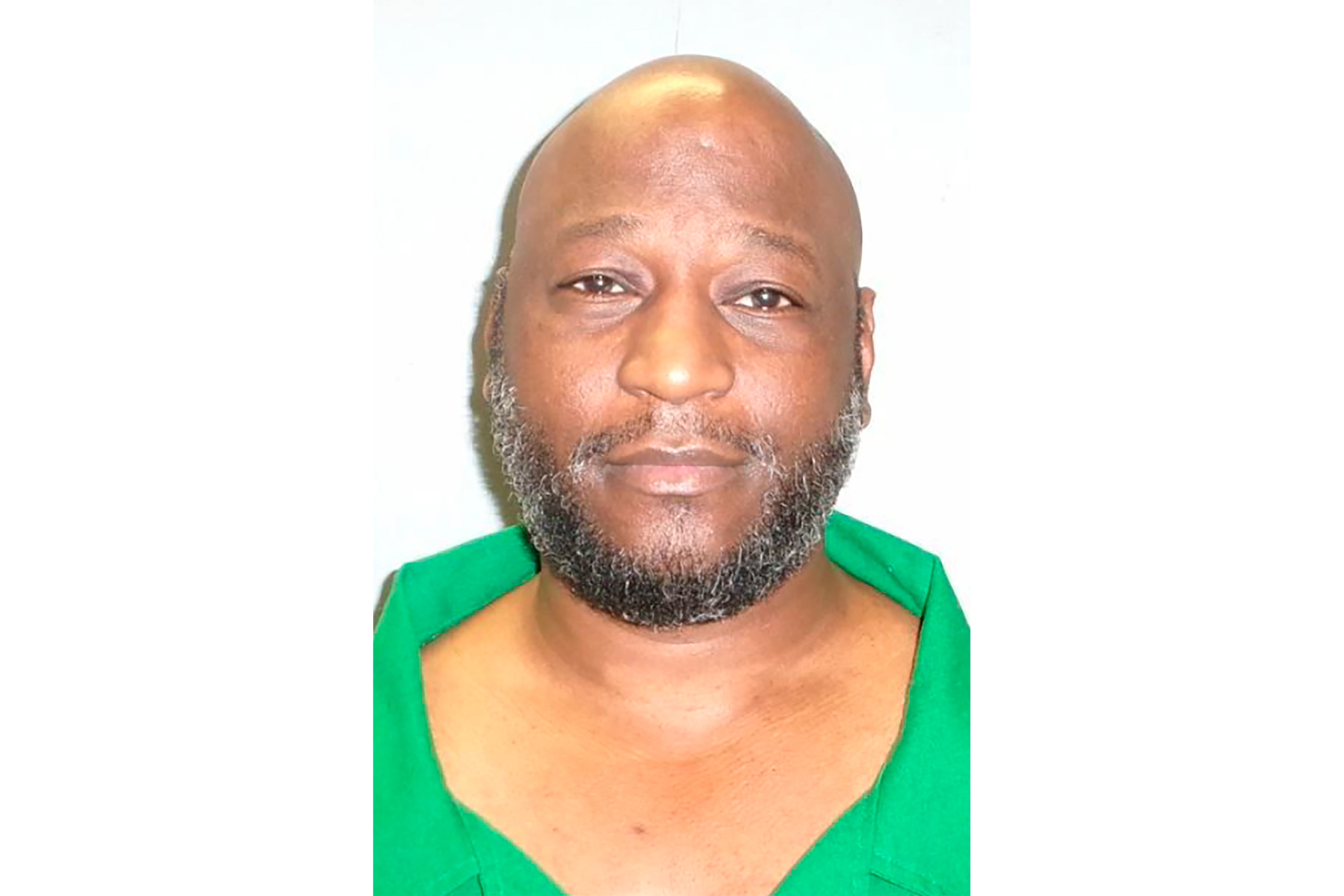Death penalty inmate says prison didn’t share enough about what’s inside lethal injection drug
Owens said signing the form would be like suicide and a sin in his faith because he would take an active role in his death

Your support helps us to tell the story
From reproductive rights to climate change to Big Tech, The Independent is on the ground when the story is developing. Whether it's investigating the financials of Elon Musk's pro-Trump PAC or producing our latest documentary, 'The A Word', which shines a light on the American women fighting for reproductive rights, we know how important it is to parse out the facts from the messaging.
At such a critical moment in US history, we need reporters on the ground. Your donation allows us to keep sending journalists to speak to both sides of the story.
The Independent is trusted by Americans across the entire political spectrum. And unlike many other quality news outlets, we choose not to lock Americans out of our reporting and analysis with paywalls. We believe quality journalism should be available to everyone, paid for by those who can afford it.
Your support makes all the difference.Lawyers for an inmate scheduled to be put to death later this month has said that state prison officials didn't provide enough information about the drug to decide whether he wants to die by lethal injection.
Freddie Owens’ attorneys want prison administrators to provide the actual report from state scientists who tested the sedative pentobarbital. The state provided just a summary that said the drug is stable, pure and — based on similar methods in other jurisdictions — potent enough to kill.
Attorneys for the state have argued a shield law passed in 2023 keeps many details about the drug private because they could be used to track the compounding pharmacy that made it.
South Carolina hasn't put an inmate to death since 2011 in part because the state struggled to get a company to sell or make the drugs needed for a lethal injection out of fear of being publicly identified.
How much information should be released to a condemned inmate is one of several pending legal issues before the South Carolina Supreme Court as Owens' execution date nears. He is scheduled to be put to death Sept. 20 for shooting a Greenville convenience store clerk in the head during a 1997 robbery.

His lawyers last week asked for a delay, saying Owens' co-defendant lied about having no plea deal and possibly facing the death penalty in exchange for his testimony. Steven Golden ended up with a 28-year sentence in a case where no evidence was presented about who fired the fatal shot beyond Golden’s testimony that Owens killed the clerk because she struggled to open the store’s safe.
Owens' attorneys want more time to argue he deserves a new trial because of new evidence, including a juror saying they were able to see a stun belt Owens had to wear to assure good behavior during his trial.
The state Supreme Court ruled Tuesday that Owens can allow his lawyer to decide the method of execution. Owens said physically signing the form would be like suicide and a sin in his Muslim faith because he would take an active role in his own death.
Owens, 46, faces a Friday deadline to let prison officials know if he chooses to die by lethal injection, electrocution or the new firing squad. If he doesn't choose he would go to the electric chair.
That decision can't be fairly made without more information about the lethal injection drug, part of a new one-drug protocol the state is using, Owens' attorney Gerald King Jr. wrote in court papers.
Instead, King wants to see the full report from the State Law Enforcement Division laboratory that tested the pentobarbital. He said the technicians' names can be redacted under the shield law.
Included in court papers was a sworn statement from a University of South Carolina pharmacy professor saying the details provided by prison officials weren't enough to make an informed decision on whether the lethal injection drug was pure, stable and potent enough to carry out the execution.
“The affidavit does not specify the test methods used, the testing procedures followed, or the actual results obtained from those tests," Dr. Michaela Almgren wrote in a sworn statement.
The report also said Owens wasn't provided with the date the drugs were tested or the “beyond use date” when a compounded drug becomes unstable. An unstable drug could cause intense pain when injected, damage blood vessels or not be strong enough to kill the inmate, Almgren wrote.
The state didn't say how the drugs, which are sensitive to temperature, light and moisture, would be stored, Almgren said.